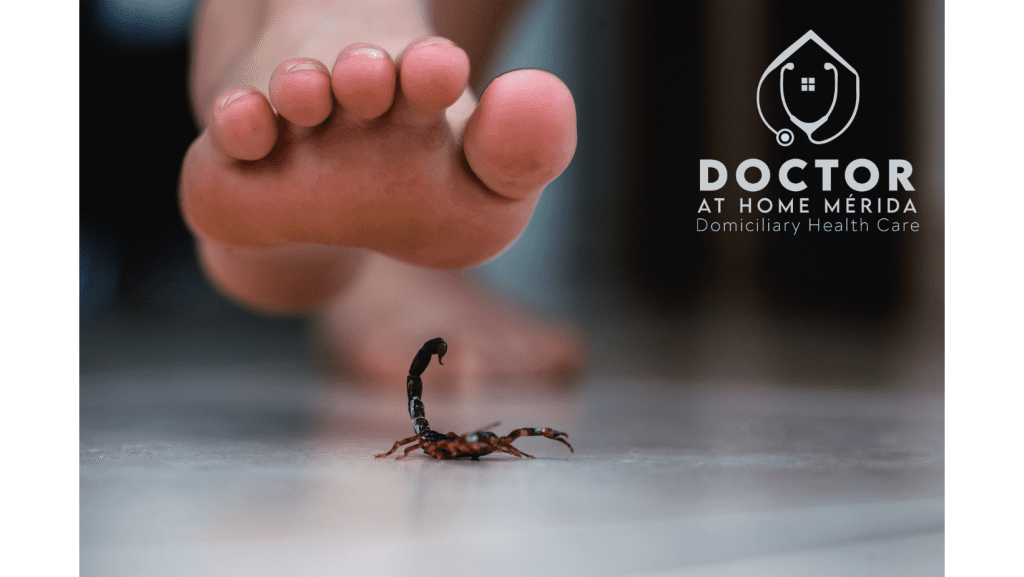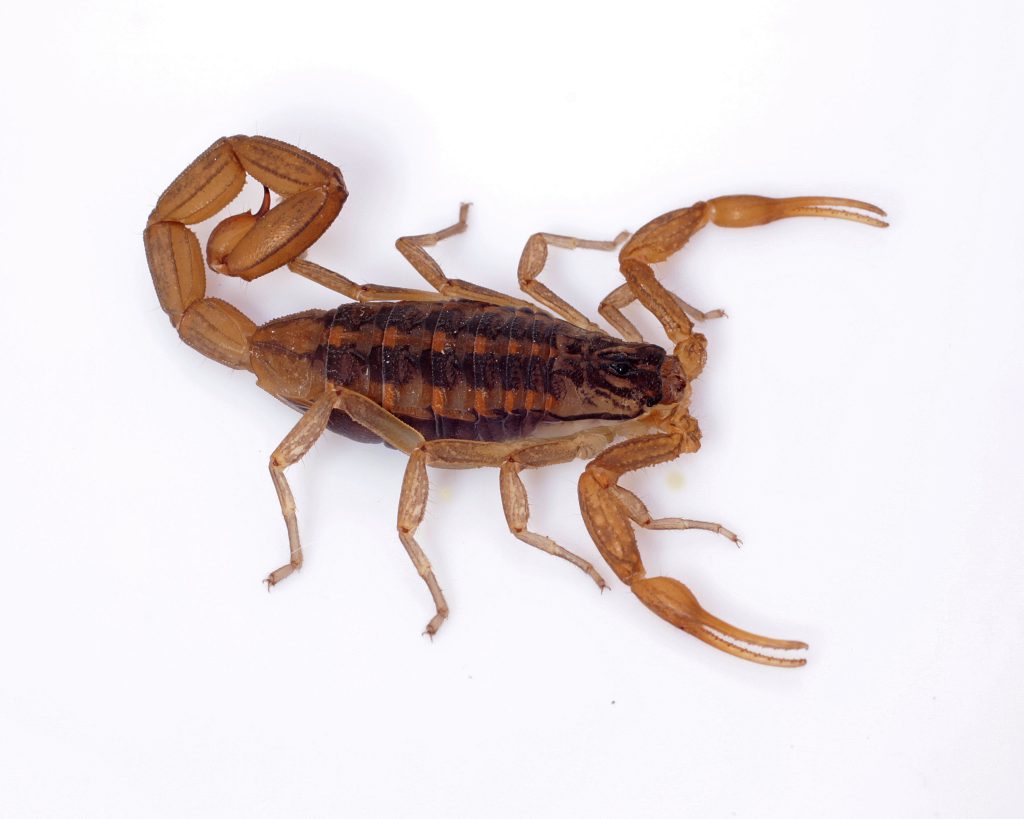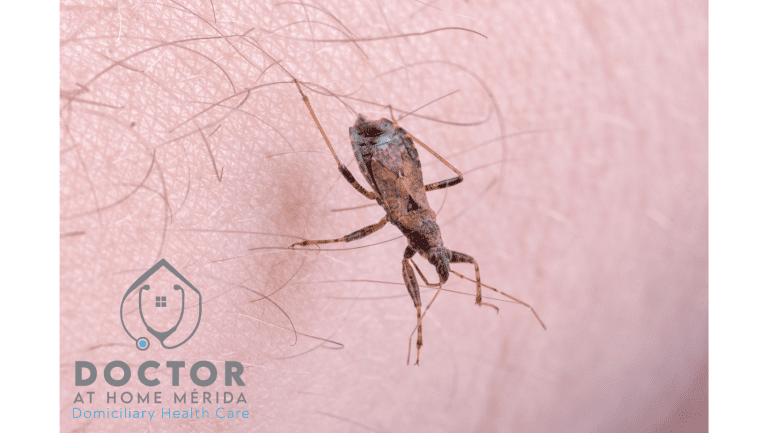Scorpion Stings in the Yucatan Peninsula: Types of Scorpions, Symptoms, Treatment, and Severity

The Yucatan Peninsula, especially in Merida, is a region where scorpion stings are a cause for concern due to the presence of some species of medical importance. Among the most relevant types of scorpions are Centruroides limpidus limpidus and Centruroides infamatus, which are responsible for most stings in the region.


Symptoms of a Scorpion Sting:
Scorpion stings can vary in severity, and symptoms depend on the type of scorpion and the amount of venom injected. Common symptoms include intense localized pain at the sting site, swelling, redness, and a burning sensation. Additionally, the affected person may experience systemic symptoms such as excessive sweating, increased salivation, nausea, vomiting, and rapid heartbeat.
Treatment of a Scorpion Sting:
The treatment of a scorpion sting depends on the severity of the symptoms. For mild cases, measures can be taken at home to relieve pain and swelling, such as applying ice to the affected area and taking over-the-counter pain relievers. However, it is essential to seek immediate medical attention if the symptoms are severe or if the affected person is a child, an elderly individual, or has an underlying medical condition.
In more severe situations, treatment may include administering antivenom to counteract the effects of the venom and supportive measures to control systemic symptoms. Prompt initiation of treatment is crucial to prevent complications and ensure a swift recovery.
Severity of Scorpion Stings:
Statistically, most scorpion stings in the Yucatan Peninsula are not severe and do not cause significant complications. The majority of people experience mild to moderate symptoms that resolve within a short period. However, in exceptional cases, especially in young children and vulnerable individuals, stings can lead to more serious complications.
Severity Scale of Scorpion Stings:
The severity classification of scorpion stings is based on the severity of symptoms and the reaction presented by the affected person. This classification helps healthcare professionals determine the level of risk and appropriate treatment for each case. Below is a commonly used severity scale:
Grade I (Mild):
- Localized pain at the sting site.
- Mild redness and swelling.
- Mild systemic symptoms such as excessive sweating and a burning sensation.
Grade II (Moderate):
- Intense and persistent pain at the sting site.
- Significant swelling at the sting site.
- Systemic symptoms may include profuse sweating, increased salivation, nausea, and vomiting.
Grade III (Severe):
- Intense and persistent pain spreading beyond the sting site.
- Pronounced and extensive swelling at the sting site.
- Systemic symptoms may be more severe, including rapid heartbeat, difficulty breathing, high blood pressure, and neurological abnormalities.
Grade IV (Very Severe):
- Intense and widespread pain throughout the body.
- Extensive and significant swelling.
- Severe systemic symptoms, such as severe rapid heartbeat, acute respiratory distress, severe hypertension, and severe neurological abnormalities.
It is important to note that the reaction to a scorpion sting can vary depending on the species of scorpion, the amount of venom injected, and the individual’s response. Therefore, any scorpion sting should be evaluated by a healthcare professional to determine its severity and the need for specific treatment, such as administering antivenom in more severe cases.
In case of a sting, it is essential to seek immediate medical attention for a proper evaluation and timely treatment. The severity of a scorpion sting should not be underestimated, especially in vulnerable populations such as children, the elderly, and individuals with pre-existing health conditions.
Prevention:
Prevention is key to avoid scorpion stings. It is recommended to keep the areas around the home clean, seal cracks and crevices in walls and ceilings, and use insect repellents when engaging in outdoor activities. Additionally, it is advisable to shake clothing and shoes before wearing them, especially in rural areas where scorpions may hide in dark places.
In conclusion, scorpion stings in the Yucatan Peninsula, including Merida, should be taken seriously and treated appropriately to prevent complications. If a scorpion sting is suspected or concerning symptoms are present, seeking immediate medical attention is essential. Prevention and knowledge about these stings are fundamental to protecting our health and well-being.




